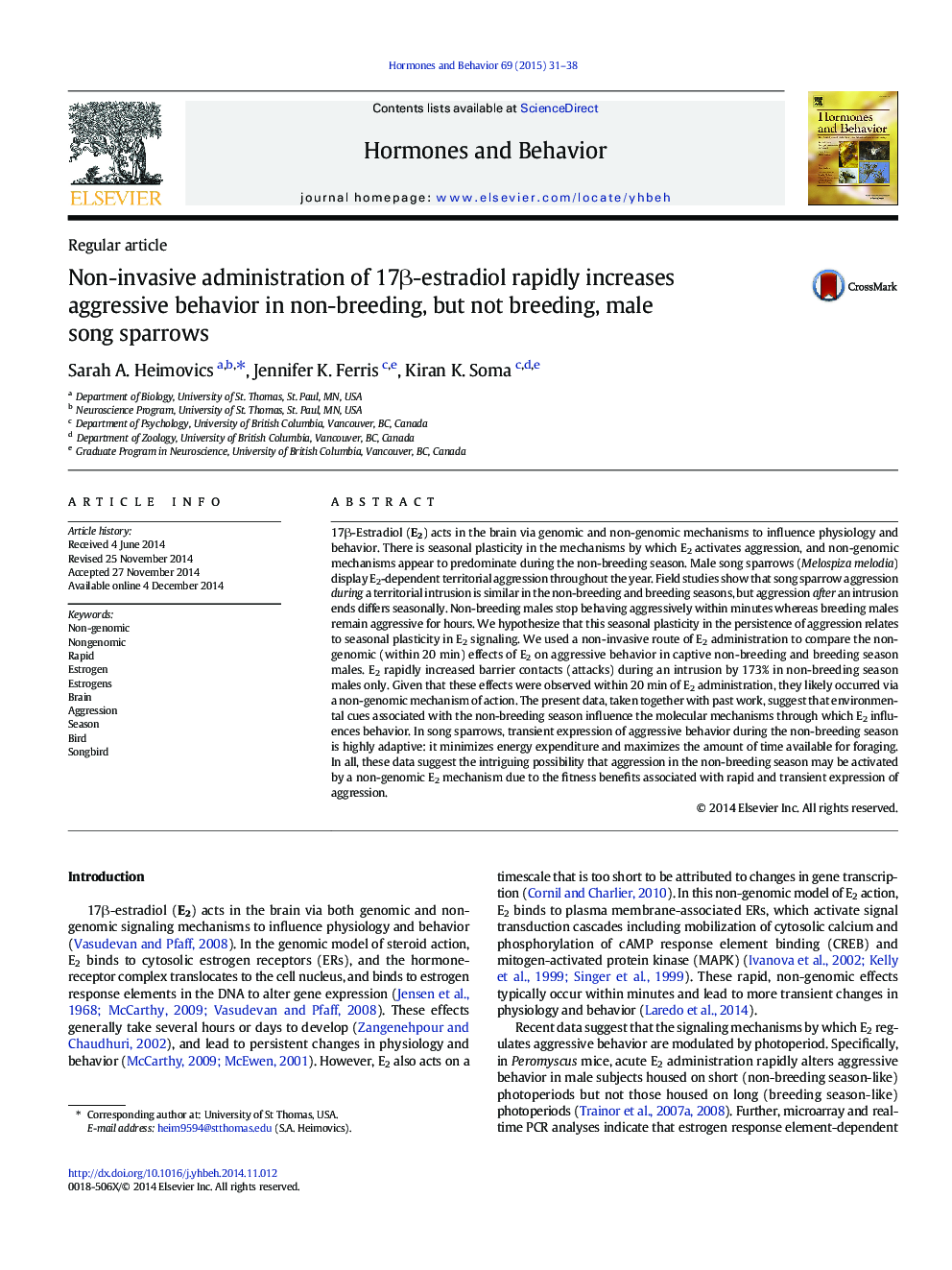| کد مقاله | کد نشریه | سال انتشار | مقاله انگلیسی | نسخه تمام متن |
|---|---|---|---|---|
| 6795098 | 540205 | 2015 | 8 صفحه PDF | دانلود رایگان |
عنوان انگلیسی مقاله ISI
Non-invasive administration of 17β-estradiol rapidly increases aggressive behavior in non-breeding, but not breeding, male song sparrows
دانلود مقاله + سفارش ترجمه
دانلود مقاله ISI انگلیسی
رایگان برای ایرانیان
کلمات کلیدی
موضوعات مرتبط
علوم زیستی و بیوفناوری
بیوشیمی، ژنتیک و زیست شناسی مولکولی
علوم غدد
پیش نمایش صفحه اول مقاله

چکیده انگلیسی
17β-Estradiol (E2) acts in the brain via genomic and non-genomic mechanisms to influence physiology and behavior. There is seasonal plasticity in the mechanisms by which E2 activates aggression, and non-genomic mechanisms appear to predominate during the non-breeding season. Male song sparrows (Melospiza melodia) display E2-dependent territorial aggression throughout the year. Field studies show that song sparrow aggression during a territorial intrusion is similar in the non-breeding and breeding seasons, but aggression after an intrusion ends differs seasonally. Non-breeding males stop behaving aggressively within minutes whereas breeding males remain aggressive for hours. We hypothesize that this seasonal plasticity in the persistence of aggression relates to seasonal plasticity in E2 signaling. We used a non-invasive route of E2 administration to compare the non-genomic (within 20 min) effects of E2 on aggressive behavior in captive non-breeding and breeding season males. E2 rapidly increased barrier contacts (attacks) during an intrusion by 173% in non-breeding season males only. Given that these effects were observed within 20 min of E2 administration, they likely occurred via a non-genomic mechanism of action. The present data, taken together with past work, suggest that environmental cues associated with the non-breeding season influence the molecular mechanisms through which E2 influences behavior. In song sparrows, transient expression of aggressive behavior during the non-breeding season is highly adaptive: it minimizes energy expenditure and maximizes the amount of time available for foraging. In all, these data suggest the intriguing possibility that aggression in the non-breeding season may be activated by a non-genomic E2 mechanism due to the fitness benefits associated with rapid and transient expression of aggression.
ناشر
Database: Elsevier - ScienceDirect (ساینس دایرکت)
Journal: Hormones and Behavior - Volume 69, March 2015, Pages 31-38
Journal: Hormones and Behavior - Volume 69, March 2015, Pages 31-38
نویسندگان
Sarah A. Heimovics, Jennifer K. Ferris, Kiran K. Soma,